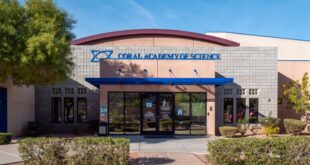A Promising Science Experiment at the International Space Station
A recent science experiment conducted at the International Space Station (ISS) aims to provide valuable insights for engineers in developing heating and air conditioning systems to ensure the survival of astronauts during missions. The experiment focuses on understanding the unique mechanics of boiling and condensation of liquids in microgravity.
Specialized Hardware Designed by Engineers from Purdue University
Engineers from Purdue University have designed specialized hardware that fits into NASA’s Fluids Integrated Rack, enabling the study of condensation in microgravity. This research is crucial as the absence of gravity in space significantly impacts the movement of fluids, affecting the traditional processes of heating and cooling systems.
The Flow Boiling and Condensation Experiment (FBCE)
The experiment, called the Flow Boiling and Condensation Experiment (FBCE), consists of two modules. The first module, launched in 2021, examines the process of water boiling in space, while the second module explores condensation reactions. Both modules are expected to remain aboard the ISS until 2025, providing sufficient data for analysis.
Comparing Data from Space and Earth
The collected data from the fluid experiments will be compared to data collected on Earth. This comparison will enable engineers to understand the processes that drive heat transfer in low gravity and help them design effective ventilation, heating, and air conditioning devices for space missions.
Potential Applications in Energy and Power Systems
The research conducted by the Purdue University team also has potential applications in other areas, such as energy and power systems. Understanding and controlling the flow of cryogenic propellant in space could lead to safer refueling of spacecraft in orbit.
Closing the Gap in Understanding Heating and Cooling Systems in Space
By studying the behavior of boiling and condensation in reduced gravity, researchers hope to close the gap in our understanding of heating and cooling systems in space. This knowledge will be invaluable in ensuring the well-being and survival of astronauts during long-duration missions.
 Mind Uncharted Explore. Discover. Learn.
Mind Uncharted Explore. Discover. Learn.

